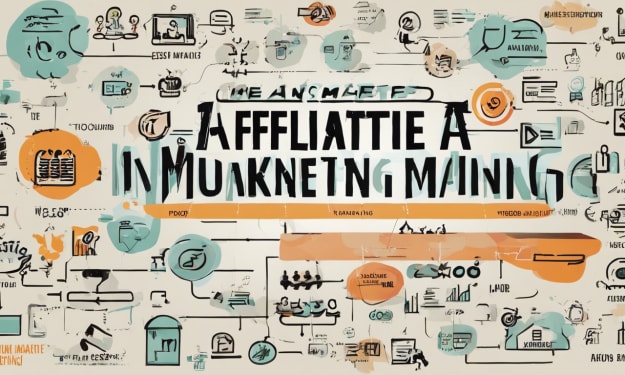
ChatGPT is a large language model developed by OpenAI. GPT stands for "Generative Pre-trained Transformer," which refers to the deep learning architecture used to build the model. ChatGPT is a type of natural language processing (NLP) model that can understand and generate human-like language.
The model was trained on a massive amount of text data, including books, articles, and websites, allowing it to learn the patterns and structures of human language. ChatGPT can generate text based on prompts given to it, making it useful for a wide range of applications, including language translation, chatbots, and text completion.
ChatGPT is capable of answering questions, holding conversations, and generating coherent paragraphs of text on a variety of topics. It can also complete sentences, paragraphs, or even entire stories, making it a powerful tool for content generation.
OpenAI has released several versions of ChatGPT, with each iteration being more powerful and capable than the last. ChatGPT-3, the most advanced version, has 175 billion parameters, making it one of the largest and most powerful language models in the world.
ChatGPT AI has the potential to help the world in many ways. Here are some examples:
Natural language processing: ChatGPT AI can help us understand and process large amounts of natural language data. This can be useful in areas such as sentiment analysis, where ChatGPT AI can analyze large amounts of social media data to gauge public opinion about a particular issue or product.
Language translation: ChatGPT AI can be used to translate text from one language to another, helping to bridge the communication gap between people who speak different languages. This can be especially helpful in areas such as international business, diplomacy, and humanitarian aid.
Chatbots and virtual assistants: ChatGPT AI can be used to create chatbots and virtual assistants that can answer customer inquiries, provide information, and even conduct transactions. This can help businesses and organizations provide better customer service while reducing the workload on human customer service representatives.
Content generation: ChatGPT AI can be used to generate content such as articles, reports, and even creative writing. This can be helpful for content marketers, journalists, and writers who need to produce high volumes of content quickly.
Education: ChatGPT AI can be used to create educational resources such as textbooks, quizzes, and interactive learning experiences. This can help make education more accessible and engaging for students of all ages and backgrounds.
Overall, ChatGPT AI has the potential to revolutionize many industries and improve the lives of people around the world. However, it's important to use this technology responsibly and ethically to ensure that it benefits everyone equally.
ChatGPT AI is built on the deep learning platform developed by OpenAI called TensorFlow, which is an open-source software library for dataflow and differentiable programming across a range of tasks. TensorFlow was developed by the Google Brain team and is widely used for building and training machine learning models, particularly deep neural networks.
More specifically, ChatGPT uses a type of deep learning architecture called a transformer, which was introduced in a paper called "Attention is All You Need" by Vaswani et al. in 2017. The transformer architecture allows ChatGPT to process large amounts of text data and generate human-like language.
The training of ChatGPT AI was done using a large-scale distributed training infrastructure built on top of TensorFlow called Horovod, which allows for the efficient training of deep learning models across multiple GPUs and computing nodes.
In summary, ChatGPT AI is built on the TensorFlow platform and uses the transformer architecture, which was introduced in 2017, and the Horovod training infrastructure for efficient distributed training.
ChatGPT AI can help a normal person in many ways in their day-to-day life. Here are some examples:
Personal assistant: ChatGPT AI can be used to create a personal assistant that can help you manage your daily tasks and schedule. For example, you could ask ChatGPT to remind you of an appointment or set a timer for cooking.
Language translation: ChatGPT AI can be used to translate text from one language to another, which can be helpful when traveling or communicating with people who speak a different language.
Virtual friend: ChatGPT AI can be used as a virtual friend to talk to when you're feeling lonely or just want to chat. ChatGPT can hold conversations on a wide range of topics and can even tell jokes or share interesting facts.
Content discovery: ChatGPT AI can be used to help you discover new content that you might be interested in, such as articles, videos, or books. You can ask ChatGPT to recommend something to read or watch based on your interests.
Personalized recommendations: ChatGPT AI can be used to provide personalized recommendations for products or services based on your preferences and past behavior. For example, if you frequently order pizza, ChatGPT might suggest new pizza toppings or restaurants to try.
Overall, ChatGPT AI can be a helpful tool for managing your daily life and engaging with the world around you. However, it's important to remember that ChatGPT is still an artificial intelligence and may not always provide accurate or unbiased information. It's important to use the technology responsibly and critically evaluate the information provided.
The future of ChatGPT AI is very exciting, and there are many possibilities for how this technology will continue to evolve and improve. Here are some potential developments we may see in the future of ChatGPT AI:
Improved language capabilities: As the technology continues to improve, we may see ChatGPT AI become even better at understanding and generating human-like language. This could include improvements in natural language processing, machine translation, and speech recognition.
More advanced applications: ChatGPT AI is already being used in a wide range of applications, but we may see even more advanced uses in the future, such as in healthcare, finance, and scientific research.
Personalization: ChatGPT AI may become even better at providing personalized recommendations and responses based on individual preferences and behaviors. This could include personalized content recommendations, customized virtual assistants, and tailored customer service experiences.
Ethical considerations: As ChatGPT AI becomes more advanced and more widely used, there will be increased attention on ethical considerations, such as bias and privacy concerns. Developers and users of the technology will need to be thoughtful and responsible in their use of ChatGPT AI to ensure that it is used in a fair and ethical manner.
Overall, the future of ChatGPT AI is very promising, and we can expect to see continued advancements in this technology that will have a significant impact on how we communicate, learn, and interact with the world around us.
In conclusion, ChatGPT AI is an exciting technology that has the potential to revolutionize how we interact with machines and communicate with each other. Built on the TensorFlow platform and using the transformer architecture, ChatGPT AI is capable of processing large amounts of text data and generating human-like language.
ChatGPT AI has many potential applications, including as a personal assistant, language translator, virtual friend, content discovery tool, and personalized recommendation engine. However, it's important to use this technology responsibly and critically evaluate the information provided.
Looking to the future, we can expect to see continued advancements in ChatGPT AI technology, including improvements in language capabilities, more advanced applications, personalized experiences, and increased attention to ethical considerations. Overall, ChatGPT AI has the potential to transform how we live and work, and we can expect to see many exciting developments in the years to come.
About the Creator
Enjoyed the story? Support the Creator.
Subscribe for free to receive all their stories in your feed. You could also pledge your support or give them a one-off tip, letting them know you appreciate their work.





Comments
Srinivas is not accepting comments at the moment
Want to show your support? Send them a one-off tip.